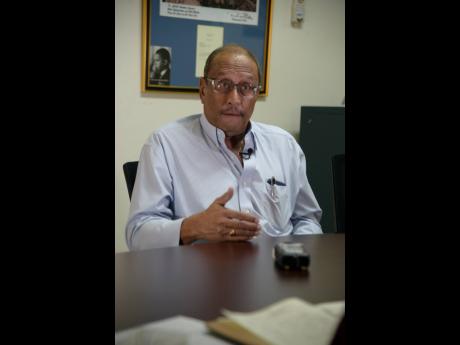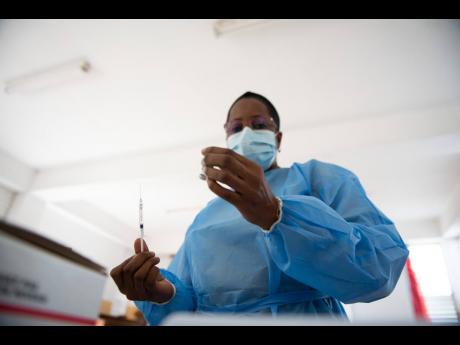Vaccine politics hurting supplies – Mitchell
Chairman of the National Health Fund Howard Mitchell has said vaccine politics has resulted in the continuous delays in the procurement of vaccines for Jamaica’s COVID-19 vaccination effort.
Mitchell was speaking at an online session hosted by the Lions Club of Kingston on Wednesday.
During his address, he explained, “It has been quite a shock to find out that at the end of the day, when the rubber hits the road, countries behave just like individuals.”
This has had serious implications for developing nations as there was the belief that wealthier countries and international institutions would come together to supply the demand for vaccines.
Further complicating this situation is the fact that about 50 per cent of the world’s vaccine production capacity falls within India, which was the epicentre of the pandemic earlier this year. Mitchell attributes the reduction of availability of vaccines due to this collapse in Indian production. He stated, “That is where the trouble started and Jamaica came to the party late.”
As a result, by January this year, Jamaica began aggressively negotiating for vaccines. Since then, almost two million doses have been sourced through the African Medical Support Platform with distribution to commence by the end of July. Additional vaccines have been also obtained from developed nations that have already satisfied their demand.
“This is a lesson for countries like Jamaica that have the ability to produce components of a vaccine. Vaccines have an average of 280 elements in them and we can supply some of those elements, and thereby get a foot in that production door,” he added.
Mitchell anticipates that the challenges with vaccine acquisition will shift towards logistics in a few months. Although he cautioned that, “I do believe that we have to do more to educate our people as to how to manage their health … At the end of the day, I believe that Jamaica has turned the corner on vaccine supply.”
He revealed that over a million doses are expected within the coming months, with the Johnson and Johnson vaccine from South Africa coming by the end of the month. Additionally, the long-awaited donation of an estimated 400,000 Pfizer vaccine is also expected.
Furthermore, Mitchell told the gathering that the Ministry of Health and Wellness has forged a partnership with the distribution company, T. Geddes Grant, to provide the facilities for vaccines that require cold storage.
Although he explained that the lack of American-made vaccines in Jamaica has more to do with the posture of the Trump administration which barred the export of vaccines rather than storage capabilities. He also chided the European Union for their decision not to recognise the Indian produced AstraZeneca vaccine.
“The efficacy of AstraZeneca is in the same range as other vaccines, and then you realise that there is a commercial war going on between England and the European Union. The AstraZeneca vaccine was developed at Oxford University and licensed to India for production … What has happened is that Europe has stopped exporting raw materials to India in order to spite Oxford AstraZeneca … this is purely vaccine politics,” he explained.


